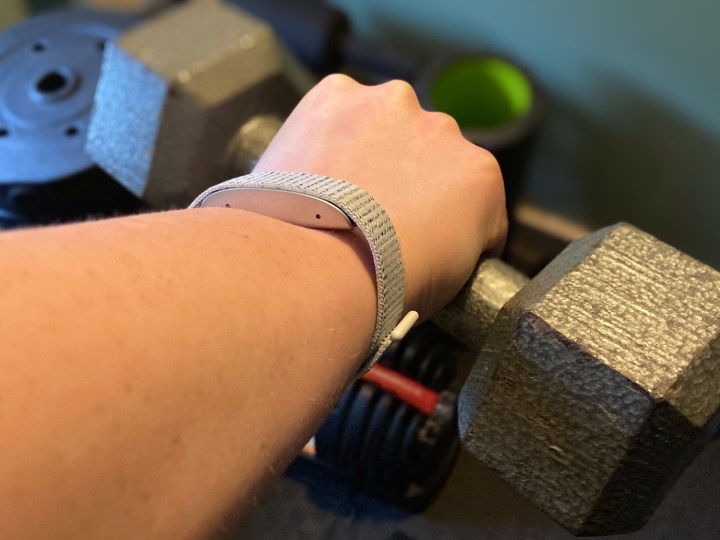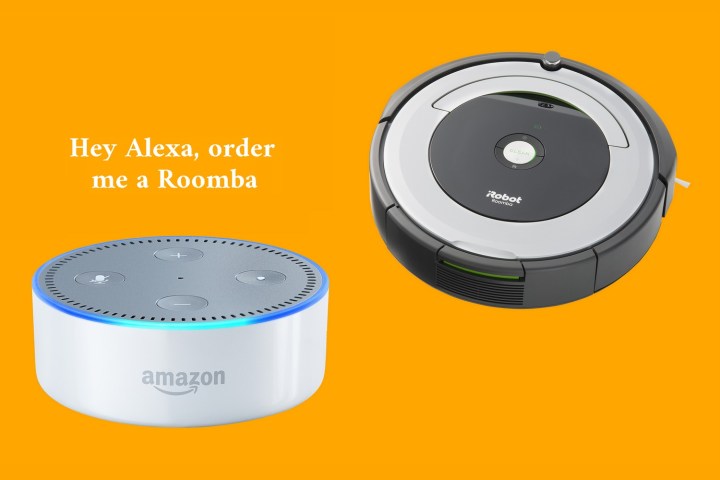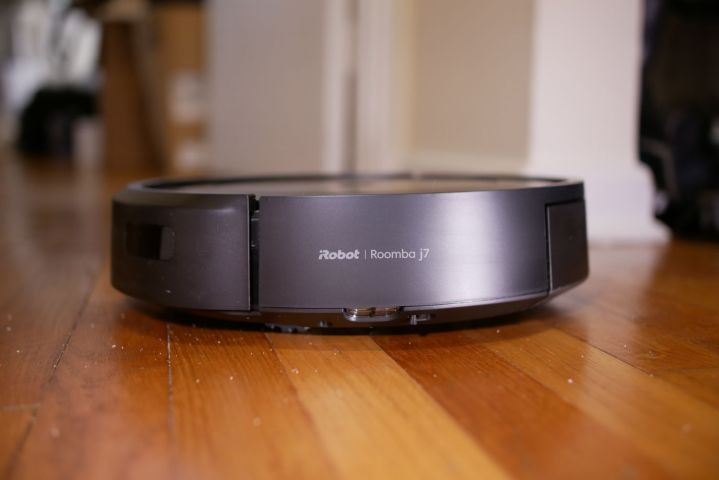Amazon’s $1.7 billion acquisition of robot vacuum cleaner brand iRobot is currently the talk of the town. But despite all the ways Amazon’s ownership could make Roombas better, the overwhelming sentiment is concern about dwindling privacy and shrinking competition. If you’re already paranoid about Echo speakers listening in on your conversation, the Roomba-maker’s buyout should set off some blaring alarm bells.
Here’s a rough idea of where we currently are in our intimate relationship with the omnicorporation: Amazon knows what you’re reading, the TV shows you have left incomplete, what’s on your shopping wish list, what kind of questions you trouble Alexa with on a daily basis, who your favorite music artist is, and what the view from your porch looks like — soon, your medical history as well. With millions of Roomba vacuum cleaners soon to fall into its network, Amazon will also know your house’s floor plan, too.

That’s way too much personal information in the hands of a corporate entity — and one with a not-so-stellar track record with privacy and handling sensitive user data. So, what is it that Amazon wants to do with its iRobot acquisition, and more importantly, what are the repercussions of the deal for robot vacuum cleaner customers like you and me?
They’re not just in it for the ‘bots
On the surface, it looks like iRobot’s acquisition will give Amazon a pre-cooked lunch of robot vacuum cleaner assets that it can serve to customers via its global e-commerce platform, garnished with some Prime benefits on top. Maybe, in a few years, some advanced capabilities can be locked to Prime membership. After all, we live in a world where BMW wants you to pay for heated seats with a monthly subscription.
It’s true that iRobot gives a portfolio of solid hardware, talent, supply chain reach, and manufacturing capabilities to Amazon., but the e-commerce giant is no stranger to the robotics game, especially those that look like a disk-shaped robotic vacuum cleaner. Just over a month ago, Amazon showcased Proteus, an autonomous warehouse robot that will lug packages around Amazon’s giant facilities without hindering human movement.
According to industry analysis from Allied Market Research, Amazon is already one of the top players in the cloud robotics market and also one of the biggest names in the warehouse robotics segment. Similar was the observation in a ResearchAndMarkets report from June of 2022. A 2022 analysis of the global consumer robotics market by Technavio also ranked Amazon as one of the top dogs in the game.

Interestingly, Amazon also established a robotics manufacturing facility in Massachusetts last year, located about 30 miles away from iRobot’s own headquarters. And, oh, the division is hiring, too. Amazon is also setting up a new consumer robotics software development center in India. Ken Washington, Vice President of Consumer Robotics at Amazon told a news outlet that, “This new consumer robotics software development center will help support our growing consumer robotics division.”
Judging by Amazon’s moves in the past few quarters, it is quite evident that the company is getting serious about making robots beep-bop around your living room, not just warehouses. Amazon has all the resources in the world to do just that, and iRobot sounds like a natural target for Amazon to poach as it aims for more space in your personal life.
An open buffet for ad targeting
Amazon ad business is all about ad targeting. The more data points it gets, the more personalized product ads it can show to its audience. iRobot’s acquisition opens a whole new universe for those ambitions. For example, the camera-equipped Roomba cleaners give Amazon unfettered access to the floor plan of your house. Where is the sofa? How big is your kitchen? Is there a nursery? You get the idea.
One way to look at the deal — if you were to believe every word Amazon has to say — is that Roomba will make your smart home life a little less frustrating, now that they’re a part of Amazon’s ecosystem with Alexa at the center of it all. But the reality is not too pleasant, even if you try to look at this with a positively cautious lens.
iRobot Roombas come with a feature called Smart Maps, which essentially creates a map of each floor in your house and all of its rooms. It isn’t too hard to imagine how all this data can be turned into a visual demand-sensing pipeline to serve targeted product ads.
Sorry if this seems overly alarmist but it does make me pause given how much modern Roomba competitors actually know about your house! The new Roborock vacuums can recognize furniture and even stuff you leave on the ground! I really wouldn’t want Amazon knowing that? pic.twitter.com/eWQf2YWaMj
— Owen Williams ⚡ (@ow) August 5, 2022
If the Smart Map sees a few pots on your balcony, you could soon see a few ads for seeds, fertilizers, and watering cans the next time you’re surfing Amazon’s vast marketplace. If your living room looks a little empty to the eye of AI, it might recommend you a few sofas and tables, too.
Another grim possibility is all that data falling into the hands of third-party shady marketing and advertising firms. We all know how the Cambridge Analytica data-harvesting scandal exploded into Facebook’s face and continues to be a stain on its reputation. However, barely any industrial research body got into the depth of how the Facebook users, whose data was sold in the wild, were affected and continue to bear the repercussions of it.
What if the Smart Map data collected by your robot vacuum cleaner somehow makes it to the shady advertising market? Even if it’s not a real-life visual depiction of your living room, based solely on the 3D data of the items in your living room, it would still be convenient for any third party to deduce a person’s wealth.
At that stage, all advertising hell breaks loose. From pushing an ad for an armchair to make your empty hall look better to a credit card call from a fintech company, there is no definite estimate of where it all ends.
Hollow foundations
If all that sounds scary, do keep in mind that a hint was dropped straight from iRobot’s head a few years ago in a Reuters interview, but soon corrected. The report notes that iRobot “could reach a deal to share its maps for free with customer consent to one or more of the Big Three in the next couple of years.”

That treasure trove of data will soon belong to Amazon. Even though Colin Angle will remain as the CEO of the iRobot division at Amazon, it is not hard to imagine that, down the road, he will face the pressure of sharing more data with Amazon. iRobot already relies heavily on Amazon’s AWS cloud infrastructure, and it plays well with Amazon’s Alexa voice assistant, too.
Now, let’s analyze iRobot’s privacy policy page. Instead of breaking it down, I’ll just put it here:
“No data will be shared with third-parties without the customer’s knowledge or control. iRobot’s privacy policy allows customers to share data with third-parties for the customer’s benefit, if they so choose.” The last part is quite tricky, and from a customer’s perspective, it often turns out to be a bait-and-switch mechanism.
It’s important to note here that data will not be shared without proper customer consent. But when was the last time you read through the privacy policy page of a tech purchase? Whether setting up a smartphone or a fitness band, I hardly know anyone in my circle who ever bothered to go through the terms and conditions during the setup process.

My non-tech-savvy aunt is definitely not going to read iRobot’s data-sharing policy if I give her a Roomba on her 50th birthday. Even as a tech reporter with nearly half a decade of experience in testing all kinds of consumer electronics and appliances, the notoriously lengthy and complicated wording of the terms-and-conditions documents has evaded my attention, willingly. Amazon’s privacy policy page is no exception.
Sketchy history, real scares
These concerns aren’t merely hypothetical.
“They happen to sell products, but they are a data company,” James Thomson, who served as business head of Amazon Services in the past, told BBC. Over the years, multiple investigative journalists and privacy advocates have been left flabbergasted by the sheer amount of personal data Amazon collects on each of its users, thanks to the breadth of data they offer up.
From audio recordings and Alexa transcriptions to music listening habits and which cereal brand you prefer, Amazon has all that data on you, timed to second-level chronological accuracy. The data collected by Amazon is enough to build a personal profile that law enforcement agencies want to get their hands on far too often.
If you’re hoping all that data is handled securely, there’s some disappointment awaiting you. According to internal documents reviewed by Wired, Amazon’s vast cache of customer data is an open buffet for its employees, and even the company’s own security team has no idea how the data was flowing.
In 2018, Amazon sent private audio recordings of a user to a stranger.
From employees snooping on customers to selling data to shady sellers, the report paints a grim picture of how all that sensitive data is open to being abused. The report was damning, but it wasn’t the first time that Amazon’s services have been caught in the eye of a privacy storm.
In 2019, three “former high-level information security employees” told Politico that Amazon has little idea of the data at its disposal, and the lax security measures are an open invitation for hackers to breach and steal personal data belonging to millions of users. Research from North Carolina State University also paints a dreary picture of all the privacy loopholes associated with Alexa. In 2018, Amazon sent private audio recordings of a user to a stranger. In a similar misfire, audio data was sent to a random contact stored on the victim’s phonebook.
Then comes Ring and its smart security cameras. Amazon has confirmed that it allows law enforcement agencies to ask for camera footage that is up to 45 days old. Amazon is reportedly training law enforcement officials on how to encourage Ring camera owners to share video recordings, according to police emails accessed by VICE. Just over a year ago, Financial Times reported that, through Ring, Amazon was partnering with over 2,000 police and fire departments across the United States.
Amazon also owns Eero, one of the biggest names in the mesh Wi-Fi router industry. In Amazon’s own words, the deal would eventually let “customers better connect smart home devices.” You can comfortably add your future robot vacuum cleaner to that list.

The most worrying Amazon acquisition, one that has set alarm bells ringing all across the industry, is OneMedical. The writing had been on the wall for a while. In 2018, Amazon acquired PillPack to grab a slice of the online pharmacy market. Then, the company revealed the Halo fitness band, which goes beyond typical fitness bands by also analyzing aspects like positivity, energy, and tone of your voice, in addition to body fat measurement using pictures of you in your undies.
With OneMedical, Amazon will gain an insight into your medical history, your favorite doctor, and a lot more granular health data. With all its bad history with privacy, expecting Amazon to act in good faith with your most personal health data is a hard pill to swallow. Needless to say, things are a tad more frightening in 2022, and the iRobot acquisition only makes the future prospects sound even more terrifying.
An aggressive push is inevitable
What if you don’t have a thousand dollars to spend on a fancy Roomba with automated computer vision mapping? Maybe you evaded a privacy nightmare by virtue of not having a grand to spare. But what if Amazon wants to sell you a Roomba at half the price because you’re a Prime member, or you can get it with a no-cost monthly financing plan? It might be hard to pass up.
Suddenly, the price constraint stops becoming a huge barrier for you. But that’s not the only way Amazon can put more Roombas into users’ houses. Amazon is not really a shining example of market fair play tactics. From shamelessly copying rival products and selling them under its own in-house brands at lower prices to exclusionary benefits and search algorithm gaming, there’s a rich anti-competitive history at play here.

With the Roomba brand under its belt, perhaps Amazon will keep selling Roomba robots with the same label and high asking price intact but putting all that tech into a cheaper alternative sold under a new private label. The company currently has over 100 private label brands that sell everything from toilet paper and electronics to cheap t-shirts. Adding a robot vacuum cleaner doesn’t sound too far-fetched. Plus, a segment that is expected to touch the $13 billion market cap by the end of this decade is too hard to ignore.
With iRobot soon to be in its possession, Amazon has already eliminated its biggest competitor if the e-commerce giant ever wanted to sell a consumer robot. If the Astro robot is any indication, it looks like Amazon is definitely serious about selling robots that live in your house. With one less rival in the game, the scare of anti-competitive scrutiny also climbs down a notch.
There’s a bonus deal, too: iRobot acquired Aeris, the maker of HEPA air purifiers back in 2021. So, yeah, looks like Amazon will also know when to pop up a filter refill ad in your product recommendations.
If you can’t beat’ em, buy ‘em
Big Tech is no stranger to the strategy of buying upstarts or simply acquiring competitors if their own copycats fail to get traction, and the list of Amazon’s acquisitions is quite lengthy. As the clear market leader in the robotic vacuum cleaner segment, iRobot was a clear target.
According to iRobot’s investor report for the 2021 fiscal year, the company has already sold over 40 million vacuum cleaners to date. An analysis by Future Market Insights suggested the global market for robot vacuum cleaners was set to reach $3.5 billion market cap by the end of 2021.

Robot vacuums are becoming big business, and Amazon went straight for the top player in the segment. Of course, it’s not a one-way road. iRobot’s latest financial year wasn’t really on a positive trajectory. With Amazon’s cash pile at its disposal, iRobot is now in a much better position to develop new products.
Research and development are crucial, and that’s one area where Amazon already has a ton of expertise following its acquisition (yes, another one) of Kiva Systems for roughly $775 million. Plus, Amazon’s global network of sales will also ensure that Roombas can whir into the homes of people around the world. It’s a strategic move that will not only revive the fortunes of iRobot but also serve the dominance of the robot vacuum cleaner market to Amazon on a silver platter.
Editors' Recommendations
- iRobot launches affordable robot vacuum and mop combo that costs just $275
- SwitchBot S10 robot vacuum connects to your plumbing for fully automated mopping
- Your Roomba robot vacuum now doubles as a security guard
- Alexa has seen me naked, and that’s okay
- Why Amazon acquiring iRobot will make Roombas even better




